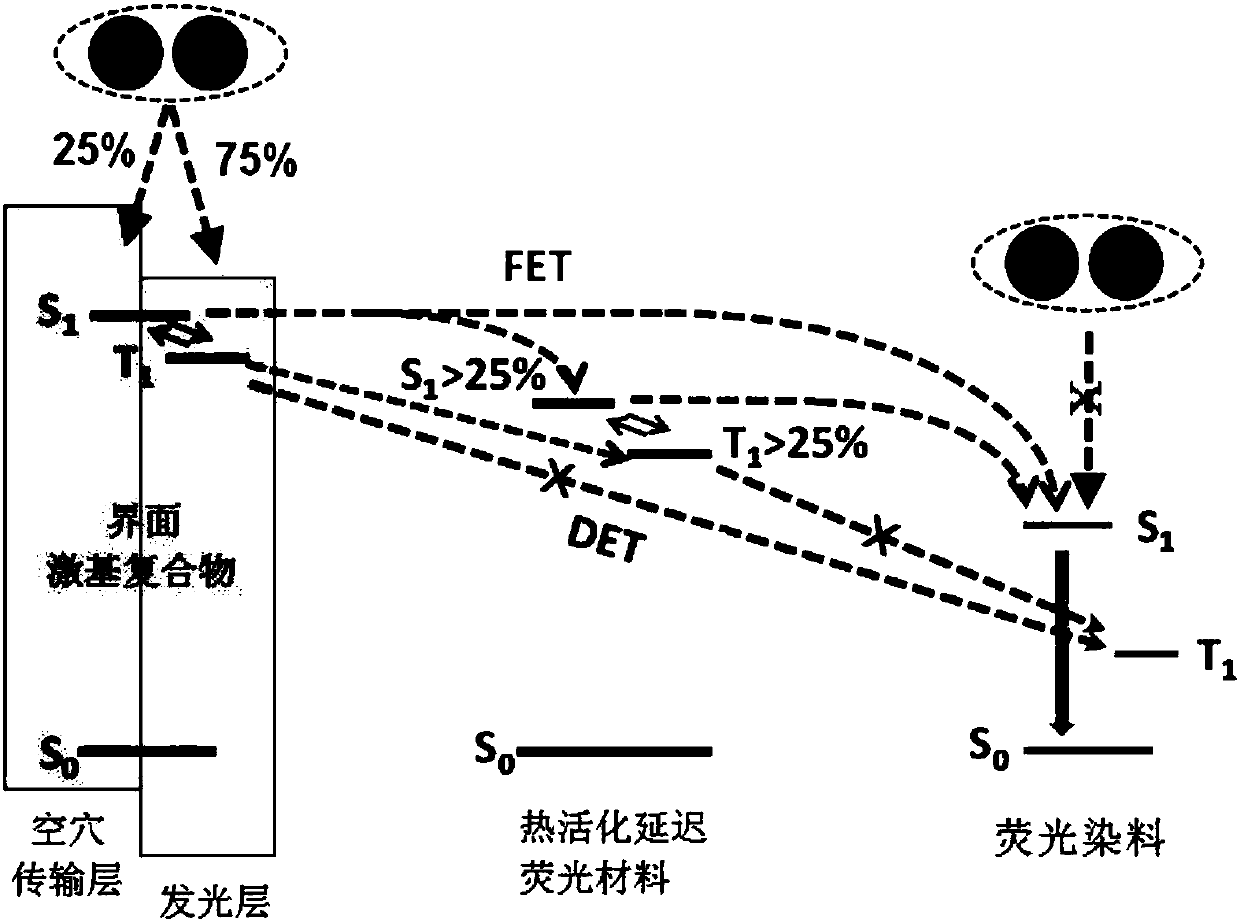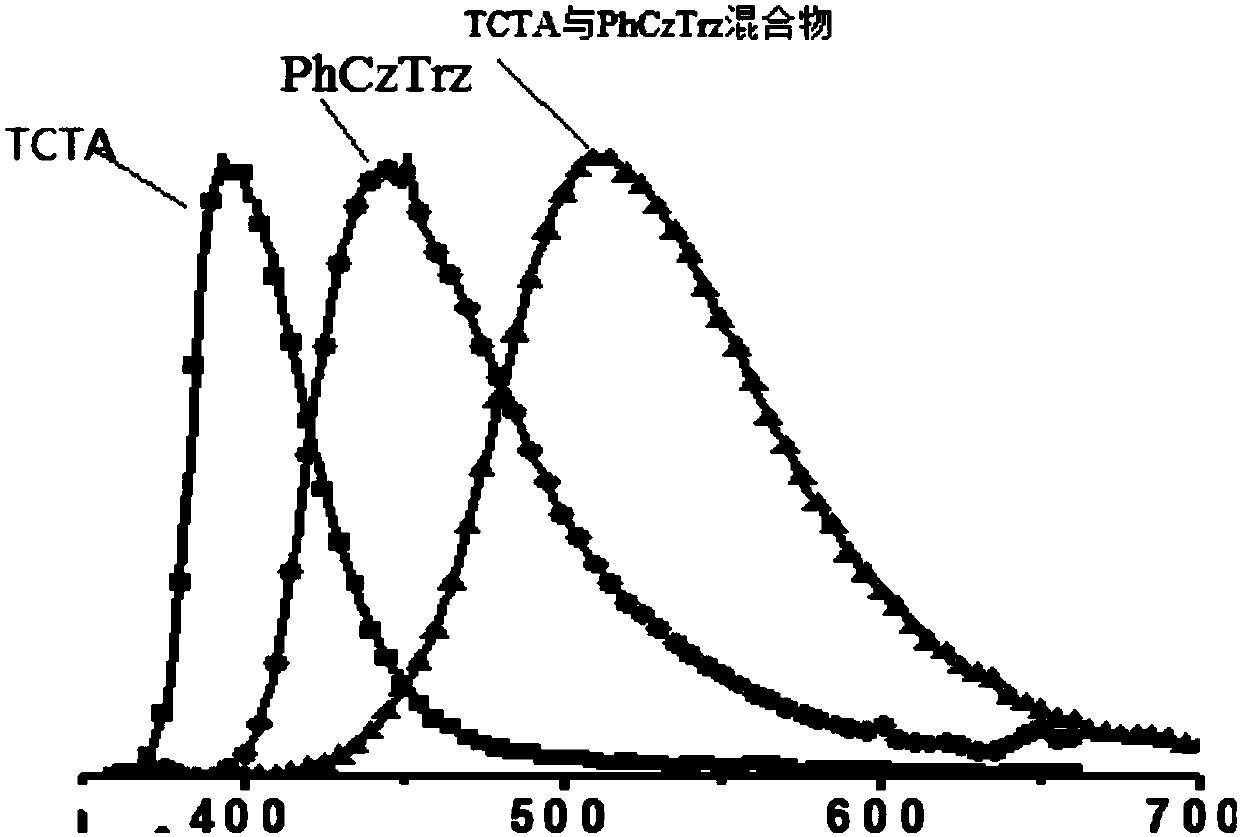Organic electroluminescent device
An electroluminescent device and luminescent technology, applied in the direction of organic semiconductor devices, electric solid devices, electrical components, etc., can solve the problems of low efficiency of light-emitting devices, achieve low roll-off, improve luminous efficiency, and high efficiency
- Summary
- Abstract
- Description
- Claims
- Application Information
AI Technical Summary
Problems solved by technology
Method used
Image
Examples
Embodiment 1
[0042] This embodiment provides an organic electroluminescent device, such as figure 2 As shown, it includes a first electrode 1, a hole transport layer 2, a light emitting layer 3, an electron transport layer 4, an electron injection layer 5 and a second electrode. As an embodiment of the present invention, specifically, the structure of the organic electroluminescent device is: ITO / TAPC (50nm) / TCTA (10nm) / light-emitting layer (30nm) / BPBiPA (30nm) / LiF (0.5nm) / Al (150nm). Wherein, the light-emitting layer 3 includes the first host material PhCzTRz, the TADF sensitizer PXZ-DPS, and the fluorescent dye PhtBuPAD. The specific structure is as follows:
[0043]
[0044] Among them, triplet energy level: TCTA is greater than PhCzTrz and PhtBuPAD.
[0045] Such as image 3 The hole transport layer material and the first host material mixture (TCTA and PhCzTrz mixture) spectra are obviously red-shifted compared to the hole transport layer material (TCTA) and the first host material (PhC...
Embodiment 2
[0047] This embodiment provides an organic electroluminescent device, the structure of which is the same as that of Embodiment 1, and the first host material is replaced with:
[0048]
Embodiment 3
[0050] This embodiment provides an organic electroluminescent device, the structure of which is the same as that of embodiment 1, and the TADF material is replaced with:
[0051]
PUM
 Login to View More
Login to View More Abstract
Description
Claims
Application Information
 Login to View More
Login to View More - R&D
- Intellectual Property
- Life Sciences
- Materials
- Tech Scout
- Unparalleled Data Quality
- Higher Quality Content
- 60% Fewer Hallucinations
Browse by: Latest US Patents, China's latest patents, Technical Efficacy Thesaurus, Application Domain, Technology Topic, Popular Technical Reports.
© 2025 PatSnap. All rights reserved.Legal|Privacy policy|Modern Slavery Act Transparency Statement|Sitemap|About US| Contact US: help@patsnap.com



